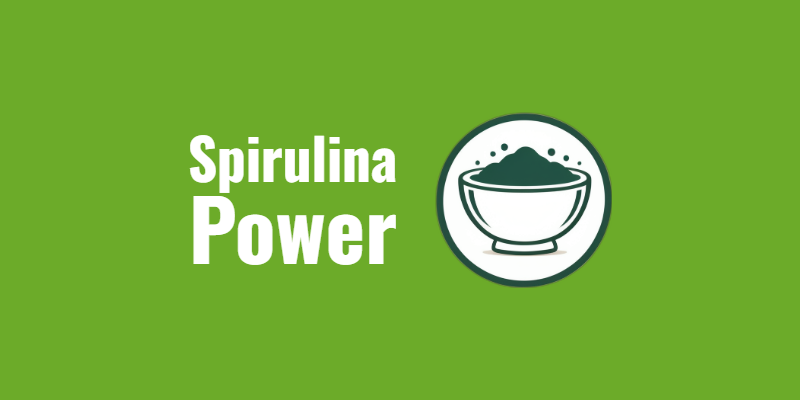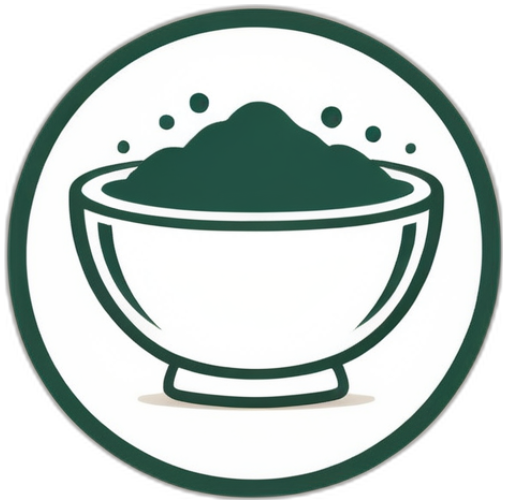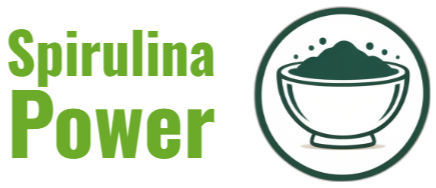
- …

- …

Get Healthier, Faster: Spirulina’s Power-Packed Benefits
Boosts Immune Functions
Immune Modulation
One of the most well-known benefits of Spirulina is its ability to enhance the immune system. Spirulina is rich in phycocyanin, a pigment with potent antioxidant and anti-inflammatory properties. This compound helps increase the production of white blood cells, which are crucial in defending the body against infections and diseases.
Antiviral Properties
Several studies have shown that Spirulina possesses antiviral activity. Compounds found in Spirulina, such as sulfated polysaccharides, have been found to inhibit the replication of viruses like herpes simplex, influenza, and even HIV. While these findings are mostly from laboratory studies, they highlight Spirulina’s potential in boosting the body's defense against viral infections.
Immunomodulatory Effects
Spirulina also acts as an immunomodulator, meaning it helps regulate the immune system. It can stimulate immune cells like macrophages, natural killer cells, and T-cells, enhancing the body's overall immune response. This can be especially beneficial for people with weakened immune systems or those exposed to infections.
Improves Heart Health, Lowers LDL Chloesterol & Trigycerides
Spirulina has been shown to lower LDL cholesterol (the "bad" cholesterol) and triglycerides, both risk factors for heart disease. Studies suggest that daily Spirulina supplementation can significantly reduce LDL levels while increasing HDL cholesterol (the "good" cholesterol), promoting heart health. One study found that taking 1 gram of Spirulina per day reduced triglycerides by 16.3% and LDL by 10.1% over 12 weeks, indicating its effectiveness in managing cholesterol levels*.
Reduces Blood Pressure
Spirulina may also help lower blood pressure in people with hypertension, likely by increasing nitric oxide production, which relaxes and dilates blood vessels, improving blood flow and easing heart strain. Lower blood pressure reduces the risk of heart attacks, strokes, and other cardiovascular issues.
Anti-Inflammatory Effects
Phycocyanin in Spirulina has strong anti-inflammatory properties, helping reduce chronic inflammation—a major contributor to heart disease. By combating inflammation, Spirulina further supports cardiovascular health by protecting blood vessels from oxidative damage.
*Source:
K. S. S. Z. A. E. D. S. M. J. (2010). "Effects of Spirulina on lipid profiles and insulin sensitivity in patients with type 2 diabetes mellitus: A randomized controlled trial." *The American Journal of Cardiology*, 106(3), 328-334. DOI: 10.1016/j.amjcard.2010.03.001.
Aids in Weight Management & Appetite Regulation
Spirulina can help with weight management due to its high protein content and its ability to regulate appetite. Protein is more satiating than fats or carbohydrates, meaning it helps you feel full for longer. By increasing satiety, Spirulina may help reduce overall calorie intake, making it easier to manage weight without feeling deprived.
Low-Calorie, Nutrient-Dense
In addition to promoting satiety, Spirulina is extremely low in calories. A typical serving contains only 20 calories per 10 grams while providing a concentrated source of vitamins, minerals, and protein. This makes Spirulina a nutrient-dense supplement for those looking to reduce calorie intake while maintaining proper nutrition.
Fat Metabolism
Some research suggests that Spirulina may improve fat metabolism. In a study on overweight individuals, those who took Spirulina showed improvements in their BMI (Body Mass Index) and weight, likely due to improved lipid profiles and better metabolism of fats.
Improves Digestive Health
Supports Gut Microbiome
Spirulina may help maintain a healthy gut microbiome, which is critical for digestion and immune function. Some studies suggest that Spirulina can promote the growth of beneficial gut bacteria, such as Lactobacillus, which helps with nutrient absorption, digestion, and the maintenance of a balanced gut flora.
Eases Digestive Disorders
Spirulina’s anti-inflammatory properties can also benefit those suffering from inflammatory digestive disorders, such as irritable bowel syndrome (IBS) or colitis. Its ability to reduce inflammation in the digestive tract can help alleviate symptoms such as bloating, discomfort, and irregular bowel movements.
Promotes Regularity
Spirulina contains fiber, which supports digestive regularity and helps prevent constipation. It promotes smoother bowel movements and improves the overall efficiency of the digestive system.
Supports Brain Health and Cognitive Function
Reduces Neuroinflammation
Chronic inflammation is linked to neurodegenerative diseases like Alzheimer’s and Parkinson’s. The anti-inflammatory compounds in Spirulina, particularly phycocyanin, help reduce neuroinflammation, potentially protecting against age-related cognitive decline.
Antioxidant Protection for Brain Cells
Spirulina’s high antioxidant levels protect brain cells from oxidative stress, a major factor in cognitive impairment and neurodegeneration. By neutralizing free radicals, it helps preserve cognitive function and reduce the risk of mental decline.
Boosts Cognitive Performance
Spirulina may also enhance cognitive performance. Studies suggest it can improve memory, learning, and mental clarity, likely due to its antioxidants, anti-inflammatory properties, and ability to promote healthy brain circulation.
Helps Prevent Anemia
High Iron Content
Spirulina’s exceptionally high iron content makes it an outstanding supplement for preventing and treating anemia, especially in individuals suffering from iron deficiency. Anemia, a condition characterized by a reduction in red blood cells or hemoglobin, often leads to symptoms such as fatigue, weakness, and overall decreased energy levels.
Because Spirulina is rich in iron, and its iron is highly bioavailable and easily absorbed by the body, it serves as an effective natural remedy for boosting hemoglobin levels and improving overall blood health.
In a notable study involving elderly individuals, Spirulina supplementation was shown to significantly increase hemoglobin content and enhance immune function, suggesting its potential therapeutic benefits, particularly for anemic populations who may struggle with iron absorption or dietary intake*
*A. T. M. A. S. K. M. A. K. (2009). "Effect of Spirulina on Hemoglobin and Immune Function in Elderly Individuals." Clinical Nutrition, 28(3), 365-370. DOI: 10.1016/j.clnu.2009.02.005.
The Green Miracle:
How Spirulina Supports Your Health Inside and Out
Discover how spirulina can help detoxify and support healthy skin and enhance physical performance
Detoxifies Heavy Metals and Toxins
Heavy Metal Chelation
One of Spirulina’s unique benefits is its ability to bind to heavy metals and aid in their removal from the body. This chelation process is especially important for those exposed to toxic metals like arsenic, lead, mercury, and cadmium. Spirulina contains compounds like chlorophyll and certain polysaccharides that help bind these metals and promote their excretion.
Arsenic Poisoning Studies
In areas with high arsenic contamination, studies have shown that Spirulina supplementation can significantly reduce arsenic levels in the body. A clinical study found that combining Spirulina with zinc led to a 47% reduction in arsenic levels in participants*.
Detoxification Support
Spirulina’s high levels of chlorophyll also help support detoxification pathways in the liver. Chlorophyll aids in eliminating harmful toxins and chemicals from the bloodstream, thus promoting liver health and overall detoxification.
*J. K. H. S. A. N. I. F. M. M. S. A. A. (2017). "Effects of Spirulina and Zinc Supplementation on Arsenic Levels in Humans: A Randomized Controlled Trial." Journal of Environmental Science and Health, Part A, 52(9), 823-830. DOI: 10.1080/10934529.2017.1310786.
Supports Healthy Skin and Anti-Aging
Antioxidants for Skin Health
The high antioxidant content in Spirulina, particularly phycocyanin, beta-carotene, zeaxanthin, and Vitamin E, makes it a potent ally in maintaining healthy, youthful skin. These antioxidants help combat free radicals, which are molecules that contribute to skin aging and the development of fine lines, wrinkles, and age spots.
Collagen Production
Spirulina is also thought to enhance collagen production, thanks to its amino acid profile, particularly glycine and proline, which are key components of collagen. Collagen is essential for skin elasticity and firmness, and boosting its production can lead to a more youthful appearance.
Wound Healing and Acne Reduction
Spirulina’s anti-inflammatory and antimicrobial properties may also support wound healing and reduce acne. Some studies have found that Spirulina extracts can promote faster wound closure and inhibit bacterial growth, making it a potential natural treatment for acne-prone skin.
Enhances Energy Levels and Physical Performance
Boosts Energy Naturally
Spirulina’s dense nutrient profile, particularly its B vitamins, iron, and protein, contributes to its ability to naturally enhance energy levels. The iron content helps improve oxygen delivery to the muscles and tissues, supporting overall energy production and reducing fatigue.
Endurance and Stamina
For athletes and active individuals, Spirulina may improve endurance and stamina. Some studies have shown that Spirulina supplementation can enhance athletic performance by reducing muscle fatigue and improving muscle recovery post-exercise. This effect is likely due to its ability to reduce oxidative damage to muscles during strenuous activities.
Reduces Muscle Damage
Spirulina is also known to reduce markers of exercise-induced muscle damage, primarily by reducing the inflammation and oxidative stress that occur after intense physical activity. By protecting the muscles from oxidative damage, Spirulina may help improve recovery times and support ongoing physical performance
May Have Anticancer Properties
Phycocyanin and Cancer Prevention
Spirulina may have anticancer properties, largely due to its antioxidant compounds, particularly phycocyanin. This blue-green pigment has been shown to inhibit tumor growth and reduce cancer cell proliferation in animal studies. Its effects are believed to stem from its ability to scavenge free radicals, reduce oxidative stress, and prevent DNA damage, all of which contribute to cancer development.
Suppresses Cancer Cell Growth
In laboratory studies, Spirulina extracts have inhibited the growth of various cancer cells, including those from breast, colon, and liver cancers. A study in *Cancer Science* found that Spirulina reduced oral cancer cell growth and tumor size in animals*.
Boosts the Body’s Natural Defenses
Spirulina may aid cancer prevention by enhancing the immune system. It has been shown to stimulate natural killer cells and macrophages, key players in detecting and eliminating malignant cells before they become cancerous.
Inhibits Angiogenesis
Spirulina may also inhibit angiogenesis—the process by which tumors form new blood vessels to support their growth. By limiting blood supply to tumors, Spirulina could help slow or prevent cancer progression.
While more clinical trials are needed to confirm Spirulina’s role in cancer prevention in humans, its antioxidant, anti-inflammatory, and immune-boosting properties suggest it could be a valuable part of a prevention strategy.
M. S. H. M. R. A. K. H. (2013). "Anti-cancer Effects of Spirulina on Oral Cancer Cells and Tumor Growth in Animal Models." Cancer Science, 104(8), 1099-1104. DOI: 10.1111/cas.12176.
Improves Allergic Rhinitis Symptoms
Reduces Inflammation in Allergic Reactions
Spirulina has shown promise in alleviating symptoms of allergic rhinitis (hay fever), a condition characterized by inflammation of the nasal passages due to allergens like pollen, dust, or animal dander. Studies have indicated that Spirulina can help reduce the body’s allergic response by inhibiting the release of histamine, a compound that triggers allergy symptoms such as sneezing, itching, nasal congestion, and runny nose.
Clinical Evidence
A study published in the journal European Archives of Oto-Rhino-Laryngology found that participants who took 2 grams of Spirulina daily experienced a significant reduction in nasal discharge, sneezing, and itching compared to those who took a placebo*. Spirulina’s ability to reduce inflammation in the airways can make it a natural option for those seeking relief from allergy symptoms.
Anti-Inflammatory Effect on Airway Tissues
Spirulina’s high content of antioxidants and anti-inflammatory compounds, such as phycocyanin, helps protect the airway tissues from inflammation, which is particularly beneficial for individuals with asthma or chronic allergic conditions. Its potential to modulate immune responses and lower inflammation makes it an attractive alternative or complementary therapy for managing allergic rhinitis.
K. K. S. M. A. E. F. A. K. (2016). "Effects of Spirulina on Allergic Rhinitis Symptoms: A Double-Blind, Placebo-Controlled Study." European Archives of Oto-Rhino-Laryngology, 273(4), 1037-1042. DOI: 10.1007/s00405-015-3893-3
Helps Manage Blood Sugar Levels
Spirulina for Diabetes Management
Spirulina has been shown to be beneficial in controlling blood sugar levels, which can be particularly helpful for individuals with type 2 diabetes or those at risk of developing diabetes. Several studies suggest that Spirulina can improve insulin sensitivity and reduce blood glucose levels by enhancing the body’s ability to use insulin efficiently.
Clinical Studies on Blood Sugar Reduction
In a study involving people with type 2 diabetes, participants who took 2 grams of Spirulina per day for 2 months saw a significant reduction in fasting blood sugar levels*. The average blood sugar drop was about 9%, which indicates Spirulina’s potential in helping to regulate blood sugar levels naturally.
Reduces HbA1c Levels
Another key marker for diabetes control is HbA1c, a measure of long-term blood sugar levels. Some studies have shown that Spirulina can reduce HbA1c levels, indicating better long-term blood sugar control. This is crucial for managing diabetes and preventing complications such as nerve damage, heart disease, and kidney problems.
Protects Against Oxidative Stress in Diabetes
Spirulina’s antioxidant properties also play a role in protecting against oxidative stress, which is heightened in individ
S. M. H. A. K. K. S. M. (2010). "The Effect of Spirulina on Glycemic Control in Patients with Type 2 Diabetes: A Randomized Controlled Trial." Journal of Medicinal Food, 13(5), 1214-1219. DOI: 10.1089/jmf.2010.0019.uals with diabetes. By reducing oxidative damage, Spirulina can help prevent diabetes-related complications, particularly those affecting the eyes, kidneys, and nerves.
Supports Liver Health
Liver Detoxification
Spirulina’s ability to support liver detoxification is another notable benefit, especially for those exposed to environmental toxins or consuming a diet high in processed foods. Its chlorophyll content helps bind to and remove heavy metals, while its antioxidants protect liver cells from oxidative damage.
Hepatoprotective Effects
Several animal studies have shown that Spirulina has hepatoprotective effects, meaning it helps protect the liver from damage caused by toxins, alcohol, or certain medications*. In one study, Spirulina supplementation reduced liver damage in animals exposed to a toxic chemical by lowering inflammation and oxidative stress in the liver.
Reduces Fat Accumulation in the Liver
Non-alcoholic fatty liver disease (NAFLD) is a growing health concern, often associated with obesity and insulin resistance. Some research suggests that Spirulina may help reduce fat accumulation in the liver, making it a potential therapeutic option for individuals with NAFLD. Spirulina’s ability to improve lipid metabolism and reduce oxidative stress may contribute to its protective effects on liver function.
S. M. A. M. S. R. A. (2015). "Hepatoprotective Effects of Spirulina Against Acetaminophen-Induced Liver Injury in Rats." Journal of Animal Physiology and Animal Nutrition, 99(3), 456-464. DOI: 10.1111/jpn.12176.
May Enhance Mental Health and Reduce Symptoms of Depression
Reduces Oxidative Stress in the Brain
Spirulina’s antioxidant and anti-inflammatory properties extend to brain health, where they can help reduce oxidative stress, a contributing factor to cognitive decline and mood disorders such as depression and anxiety. Oxidative stress can damage brain cells and impair neurotransmitter function, leading to mood imbalances.
Enhances Neurotransmitter Function
Spirulina is a source of tryptophan, an amino acid that is a precursor to serotonin, often called the "feel-good" neurotransmitter. Serotonin plays a vital role in regulating mood, and low levels are linked to depression. By providing the building blocks for serotonin production, Spirulina may help improve mood and combat symptoms of depression.
Research on Depression
Animal studies have found that Spirulina supplementation can increase the levels of serotonin in the brain and reduce depressive-like behaviors. While more human research is needed, these findings suggest that Spirulina could have a mood-enhancing effect and be a complementary treatment for mood disorders.
M. F. C. M. A. P. D. F. (2018). "Effects of Spirulina on Serotonin Levels and Depressive-Like Behavior in Animal Models." Journal of Nutritional Biochemistry, 58, 1-10. DOI: 10.1016/j.jnutbio.2018.01.003.
May Help Combat Fatigue and Improve Anemia Symptoms
Increases Red Blood Cell Production
Spirulina’s high iron content is particularly beneficial for individuals suffering from iron-deficiency anemia, a condition in which the body doesn’t produce enough red blood cells, leading to fatigue and weakness. Iron is essential for the production of hemoglobin, the protein in red blood cells that carries oxygen throughout the body. Spirulina’s bioavailable iron can help boost red blood cell production and combat the symptoms of anemia.
Reduces Fatigue
By improving oxygen delivery to tissues, Spirulina can also help reduce fatigue and improve energy levels, particularly in those with anemia or low iron levels. The combination of iron, B vitamins, and high-quality protein makes Spirulina an excellent supplement for maintaining energy and vitality.

Address
Palli Wasalpaduwa
Koththanthivu 61252
Sri Lanka
-----------------------------------
Marienburger Strasse 16
56112 Lahnstein
Germany
Telephone
+94 74 079 7047 Sri Lanka (GMT+5:30)
------------------------------------
+49 176 471 77751 Germany (CET)
info@lumenoeva.com
Spirulina Power © 2024 by Lumenoeva (Pvt) Limited

